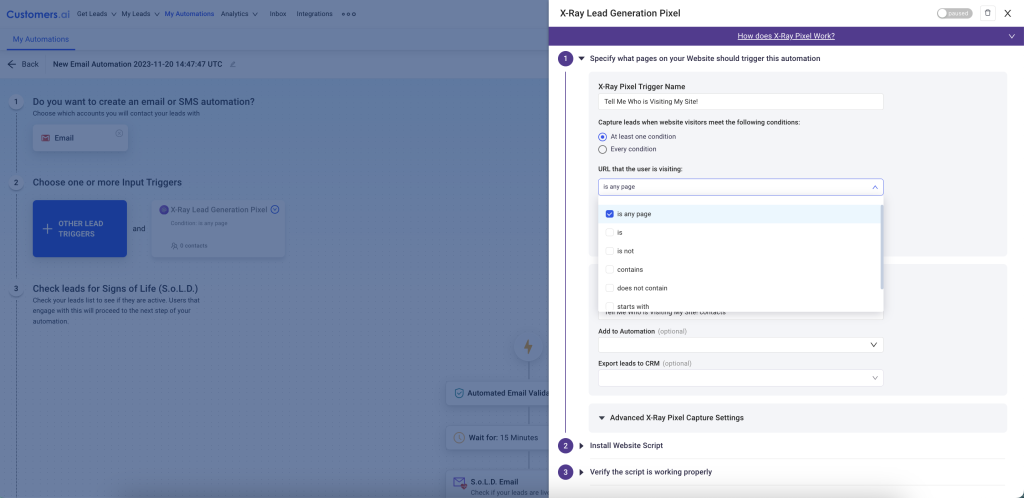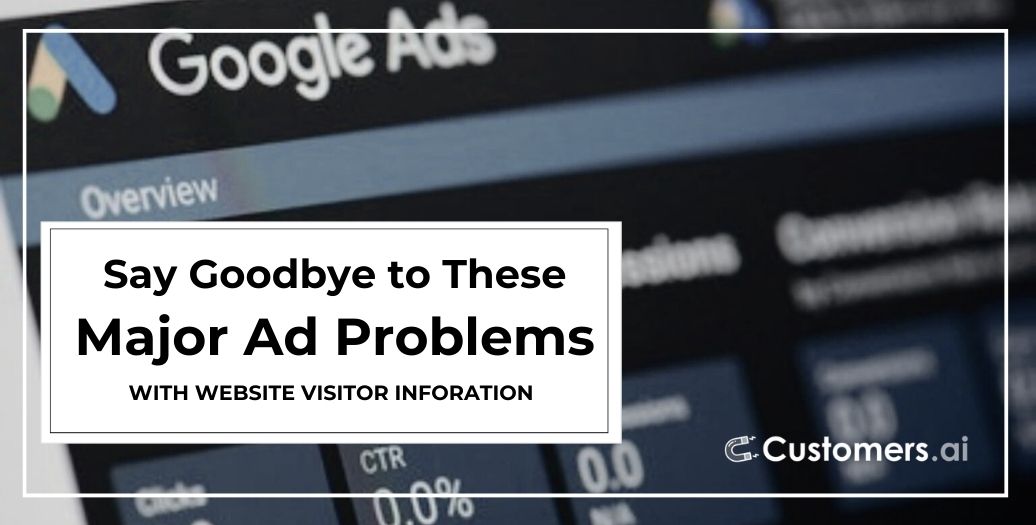New year, new ad problems. #amiright
As we dive into 2024, it’s no secret that the advertising landscape is evolving faster than a viral TikTok dance. The golden days of easy clicks and cookie-cutter strategies are gone thanks to continuous changes by ad platforms like Google and Meta.
Unfortunately, this evolution is leading to new problems for advertisers.
Let’s talk about the big four right now: Chrome’s adieu to third-party cookies, the pesky problem of click fraud, LinkedIn turning into the ‘Beverly Hills’ of ad costs, and the mysterious vanishing act of click IDs.
One of these by themselves would be overwhelming but all four together…what gives?
For advertisers, it’s adapt or get left behind. The stakes? Skyrocketing costs and the dreaded dip in ROI.
But hey, it’s not all doom and gloom.
New AI technology is making marketers’ lives easier and helping to overcome these challenges. Including website visitor identification.
In this post, we’re going to unpack how website visitor identification isn’t just a fancy buzzword, but a real-deal solution to help you sidestep these ad challenges. Let’s jump in.
Convert Website Visitors into Real Contacts!
Identify who is visiting your site with name, email and more. Get 500 contacts for free!
#1. Chrome Third-Party Cookie Removal
Google warned us years ago they’d be removing cookies from Chrome. Sure they pushed the date back a few times but guess what? The time has come.
For marketers and advertisers, this is a big deal. For years, we relied on third-party cookies to target and re-target consumers. Those days are about over. The removal of cookies means:
- Poor Cross-Site Tracking: Without third-party cookies, the ability to track users across different websites disappears.
- Reduced Personalization Capabilities: With less user data, personalization becomes a challenge, resulting in less accurate campaigns.
- Attribution Modeling Challenges: As if attribution wasn’t already tricky enough, without third-party cookies it will be even more complex.
- Smaller Retargeting Audiences: Without the tracking capabilities of third-party cookies, retargeting audiences will shrink and marketers may find it challenging to effectively retarget.
When it comes to dealing with the dissolution of cookies, advertisers have to focus on first-party data collection.
And that’s where website visitor identification comes in.
Website Visitor Information = First-Party Data
Anonymous website visitor tools like Customers.ai allow you to collect the names, emails, domains, and more of the people visiting your site.
Think about how great this is for your ad campaigns!
The whole point of ads is to bring people back to your site and get them to take an action that captures their information (purchases, downloads, etc.). Now you have their information!
You can use it to populate retargeting lists, identify users to specific landing pages (including your paid landing pages), and get back some of the attribution data you are losing.
While the phase-out of third-party cookies is less than ideal, tools like website visitor identification can open up new doors for advertisers.
#2. Ad Fraud
Ad fraud certainly isn’t new but that doesn’t mean it isn’t a problem.
According to Jupiter Research, ad fraud cost marketers $83 billion in 2023 and is only expected to grow. That is a lot of money wasted!
If you aren’t familiar with how ad fraud (and specifically click fraud works), Cloudflare has a good breakdown:
“Click fraud perpetrators can set up webpages that display PPC ads, and then use click bots to “click” on those ads. With each click, the ad network has to pay the website operator (the scammer). The more fraudulent clicks there are, the more the ad network has to pay the website if the fraud goes undetected.”
Now, you might be wondering, what does website visitor identification have to do with this?
Here’s the thing, with website visitor identification, you are getting the names and emails of people coming to your site. Our tool then validates those emails, ensuring the people you are adding to your retargeting lists or custom audiences are real people.
Now, you can run more targeted campaigns, reducing the likelihood of click fraud.
#3. LinkedIn Ad Costs
It seems like every year we are subject to rising ad costs. Bad news marketers – this year is no different, especially when it comes to LinkedIn.
Per Search Engine Land, LinkedIn ad costs were up by as much as 30% with one media buyer revealing their CPM was now as much as $300 for premium LinkedIn campaigns.
These costs are driven by supply and demand. The more demand there is, the more LinkedIn can charge.
What’s notable about this, is according to LinkedIn’s VP of Marketing Solutions, more brands are investing their ad spend in LinkedIn because of the platform’s unique targeting capabilities.
This brings us back to…you guessed it…website visitor identification!
Let’s break it down.
Depending on your campaign objective, costs are driven by impressions, clicks, website visits, etc.
One of the main issues of rising costs is building a large enough audience to garner clicks, impressions, etc.
With website visitor data, you can create matched audiences, ensuring you are targeting the right people and lowering your overall costs. Oh, and improving ROAS.
Take away the guesswork!
#4. Click ID Removal
We touched on this when talking about data privacy changes but it’s worth revisiting, especially as we think about how it impacts advertisers.
The launch of iOS17 brought with it Link Tracking Protection. The gist? Say goodbye to clickID data and hello to cross-campaign tracking challenges.
Does this sound familiar? It’s essentially the same issue we are facing with the loss of cookies in Chrome.
Less tracking = poorer attribution, increased costs, few abilities to personalize ads, and a decline in performance. Not great.
This is where website visitor ID tools can help.
If you are using the Customers.ai Website Visitor ID X-Ray pixel, you are capturing names, emails, etc.
Segment by landing page.
You can then identify visitors to your dedicated landing pages and integrate them directly into your CRM, giving you a clear picture of where your audience is going and what campaigns are driving sales.
Get Started with Website Visitor Identification
We know we’re biased when it comes to the advantages of website visitor identification for advertisers but if you aren’t convinced, here is what one of our customers has to say:
“Customers.ai empowers us to make smarter decisions for our business and absolutely maximize our ad budget.”
– Shawn Kamal, Vice President TripCorner
Or, try Customers.ai for free.
To install the Website Visitor ID X-Ray Pixel, sign up, go to your dashboard, and navigate to My Automations.
Select + New Automation and get your pixel. We have easy install options for Google Tag Manager, WordPress, and Shopify, or you can install the pixel manually.

You will be up and running in 90-seconds and ready to take on these challenges.
At the end of the day, the ad platforms may try to make our lives harder but we know advertisers are smart and are always ready to pivot. Let’s pivot together.
Important Next Steps
- See what targeted outbound marketing is all about. Capture and engage your first 500 website visitor leads with Customers.ai X-Ray website visitor identification for free.
- Talk and learn about sales outreach automation with other growth enthusiasts. Join Customers.ai Island, our Facebook group of 40K marketers and entrepreneurs who are ready to support you.
- Advance your marketing performance with Sales Outreach School, a free tutorial and training area for sales pros and marketers.
Convert Website Visitors into Real Contacts!
Identify who is visiting your site with name, email and more. Get 500 contacts for free!
